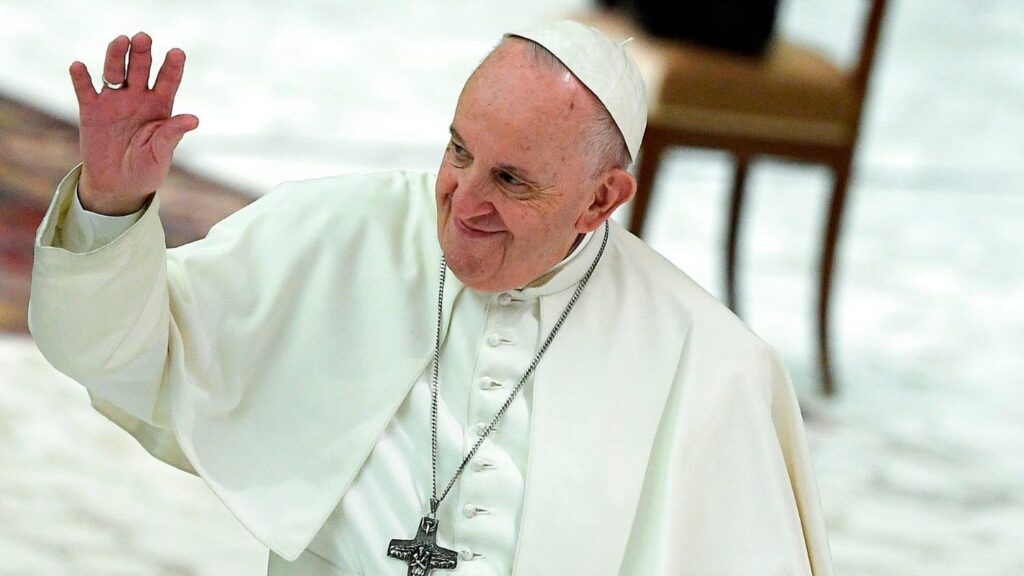Specific clarifications on the Fiducia Supplicans declaration
Three Kinds of Blessings Explained in the Declaration

In recent weeks, a series of criticisms and misunderstandings have been unleashed around the Fiducia Supplicans document, which is why I would like to clarify four points that seem central to the document without intending that these exhaust the many discussions that surround the purpose of a more inclusive church open to the Grace and Love of God, could continue to arise among those who take on the necessary task of reading the complete document and allowing themselves to be challenged by the Spirit during its reading.
The first reflection is on the meaning and context of this document, which is published as part of the responses to the “doubts” expressed by some Cardinals towards Pope Francis, in recent months, where, one of them, was precisely about the legitimacy of blessings to same-sex couples. This point is of special importance, since, as noted from the first lines, it is not intended to contradict, in the least, the doctrine on marriage or distort the blessing of this sacrament; Nor is it the intention to legitimize or endorse same-sex unions or the situation of irregular couples. Rather, the purpose is to respond, from the pastoral charity to which Pope Francis has invited us all and, in a very particular way, priests, to accompany and be vehicles of the infinite Love of the Father, which is always good for everyone without any exclusion.
It should also be mentioned here, to avoid further confusion, that just as this declaration does not contravene the sacrament of marriage nor does it endorse unions between people of the same sex, it also warns that the blessings imparted to these couples should not be given within a rite that it is similar to marriage or that it is promoted as such neither in an ordinary nor protocol way, clarifying with all lucidity that the exception should not be the norm in the liturgy either. On the contrary, it takes on true and full meaning when it becomes a way of accompanying and sowing a seed that comes from the Holy Spirit that must then be cared for and sought after.
In this sense, a second reflection deals with the object and meaning of blessings. These, the document clarifies, have the sole purpose of imploring divine help to be able to live according to God’s designs. Thus, they are a help that is requested and that responds to an intrinsic desire to be able to order one’s life to the will of God, but, knowing that we are limited and fragile, we need and beg for the ever greater help of the Father who, soon, comes to our help immediately and without judgment.
It is then possible, says the document in question, to bless people, places, situations, objects and, in general, everything that has been created by the Father to praise and bless him (Num. 8) since the blessing plays a double role: On the one hand, it points out the own insufficiency that it requires from the Creator and, on the other, it points out the desire that that object or that person who is being blessed, live according to the will of God the Father and arrange his life or internal order to serve, and glorify him.
Considering this, there are three kinds of blessings that are explained in the declaration:
1. Descendants: they come from God to men and women of good will and help, strengthen, shower grace and encourage them in the search for the greatest possible good.
2. Ascending: they are those that come from women and men and are directed to God. These are the ones that most strongly denote the need for His Love and His grace, but they can also be given as a manifestation of the desire to give glory to God and to thank Him for all His gifts, that is, they have a double meaning: supplication and gratitude.
3. Those that extend to others and that anyone can mention as a sign of gratitude or desire that the other also receive love and grace. They are desires for peace, for good, for the outpouring of God’s Love to others, as it has been out poured in one’s own life.
A third reflection leads us to collect these three types of blessings to affirm that the active subject of the blessing is always the Father and the passive subject is always the person who knows he is in need of grace. To conclude that only those who live in an orderly manner have the right to be blessed would be to annihilate the great grace that is offered to us as sons and daughters of God and to set limits on someone who has never had them, because He is the Unlimited par excellence.
In the Gospel, we read: “I have not come for the healthy, but for the sick” (Mk. 2:16). The message is clear: the one who needs grace is not the one who already lives with it and according to the will of God, he needs it to continue living like this, but the one who needs it to redeem and transform himself is the one who is not in that condition yet, but he wants to be and therefore, which of us can be that is already perfect and holy? If each person strives daily to live better and each Christian to be a little holier, we all need the Father, because only He has the strength that we lack.
Something very beautiful about faith is knowing that no matter how many times we fall, He will always lift us up. For this reason, if we are called to be vehicles of this Love that wants to manifest itself, with what right do we deny a blessing to those who do not seem to us to live rightly? In principle, the blessings are extended to all humanity and great care must be taken, the declaration warns, not to be too judgmental or moralistic, since moral perfection is not and should not be an indispensable condition for not receiving a blessing (Num. 25).
Finally, as a fourth reflection, the document proposes that blessing is always the possible good which, as was briefly mentioned previously, means that, in the face of challenging situations such as living in accordance with God’s designs and committing to salvation, Blessing opens the door and is a communicating vessel so that this path is more bearable, as it instills strength and spreads grace and thus, knowing that we are “always supplicating and always blessed” as “pilgrims” on the path of faith and firm conviction that the Lord is at our side. (No. 45).
As I proposed at the beginning of these pages, the intention for whoever reads them is to refer to the original document and read it carefully, not as someone who intends to judge and find heresies to burn at the stake, but as someone who knows that nothing he understands It will be enough if he is not enlightened by the Holy Spirit and can then open his heart to receive the echoes that invite mercy and brotherhood. Because on this path and in this time, we only have to accompany each other as brothers in faith.
Related

Dance: Strength, Delicacy, and Dignity
Mar Dorrio
29 April, 2025
2 min

The Four Seasons of Your Life: Much More Than Music
P Angel Espinosa de los Monteros
28 April, 2025
3 min

A Pope Never Goes Away
José Antonio Varela
28 April, 2025
4 min

Divine Mercy, the Small and the Great
José María Montiu de Nuix
27 April, 2025
5 min
 (EN)
(EN)
 (ES)
(ES)
 (IT)
(IT)

